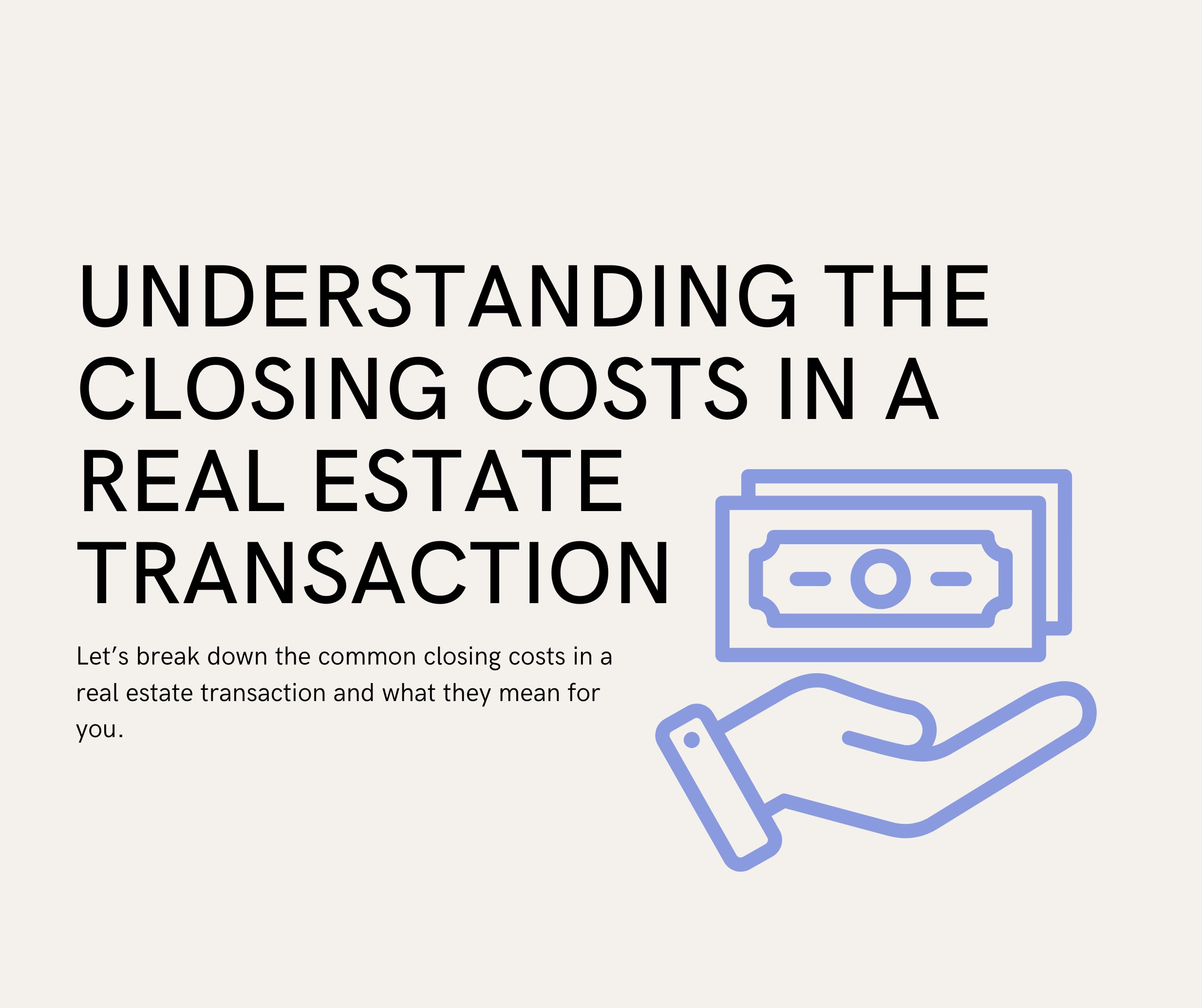Understanding the Closing Costs in a Real Estate Transaction
Buying or selling a home involves several steps, and understanding the closing costs is crucial for both buyers and sellers. These costs can add up quickly, so it’s essential to know what to expect and how to prepare. Let’s break down the common closing costs in a real estate transaction and what they mean for you.
What Are Closing Costs?
Closing costs are the fees and expenses that both buyers and sellers pay to finalize a real estate transaction. These costs cover various services and administrative tasks required to transfer ownership of the property. Typically, closing costs range from 2% to 5% of the home’s purchase price.
Common Closing Costs for Buyers
- Loan Origination Fees
Loan origination fees are charged by lenders for processing a new loan application. These fees usually include the cost of underwriting and preparing the loan documents.
- Appraisal Fees
An appraisal fee is paid to a professional appraiser to determine the market value of the property. Lenders require an appraisal to ensure the loan amount is appropriate for the home’s value.
- Home Inspection Fees
Home inspection fees cover the cost of a professional inspector who evaluates the condition of the property. This step helps buyers identify any potential issues before closing the deal.
- Title Insurance
Title insurance protects buyers and lenders from potential legal issues related to the property’s title. This one-time fee ensures that the property is free from liens or disputes over ownership.
- Escrow Fees
Escrow fees are paid to the escrow company or agent who handles the closing process. The escrow agent ensures that all documents are in order and that funds are properly disbursed.
- Property Taxes
Depending on the time of year, buyers may need to reimburse the seller for property taxes that have been pre-paid. Alternatively, buyers might need to pay a prorated amount of property taxes at closing.
- Homeowners Insurance
Lenders require buyers to purchase homeowners insurance before closing. This insurance protects the property against damage or loss due to events like fire, theft, or natural disasters.
Common Closing Costs for Sellers
- Real Estate Commissions
Sellers typically pay the real estate commissions for both the listing agent and the buyer’s agent. This fee is usually around 5-6% of the home’s sale price.
- Title Insurance
Sellers often pay for the buyer’s title insurance policy, ensuring that the title is clear of any defects or liens.
- Escrow Fees
Like buyers, sellers also pay escrow fees to the escrow company or agent managing the closing process.
- Transfer Taxes
Transfer taxes are state and local taxes imposed on the transfer of property ownership. The amount varies depending on the property’s location.
- Home Warranty
To sweeten the deal, some sellers offer to pay for a home warranty, which covers the cost of repairing or replacing major home systems and appliances for the buyer’s first year.
- Outstanding Liens and Judgments
Sellers must clear any outstanding liens or judgments against the property before closing. This ensures that the title is free of encumbrances.
Conclusion
Understanding the closing costs in a real estate transaction helps buyers and sellers prepare for the financial responsibilities involved. By knowing what to expect, you can budget accordingly and avoid any surprises at the closing table. Whether you’re buying or selling, being informed about these costs will make the process smoother and more transparent.
Other Related Topics
If you found this information helpful, you might also enjoy learning about the benefits of getting pre-approved for a mortgage, how to negotiate lower real estate commissions, or understanding the different types of property ownership. Stay tuned for more insightful real estate posts!
Contact us today or visit our Instagram | Facebook .
